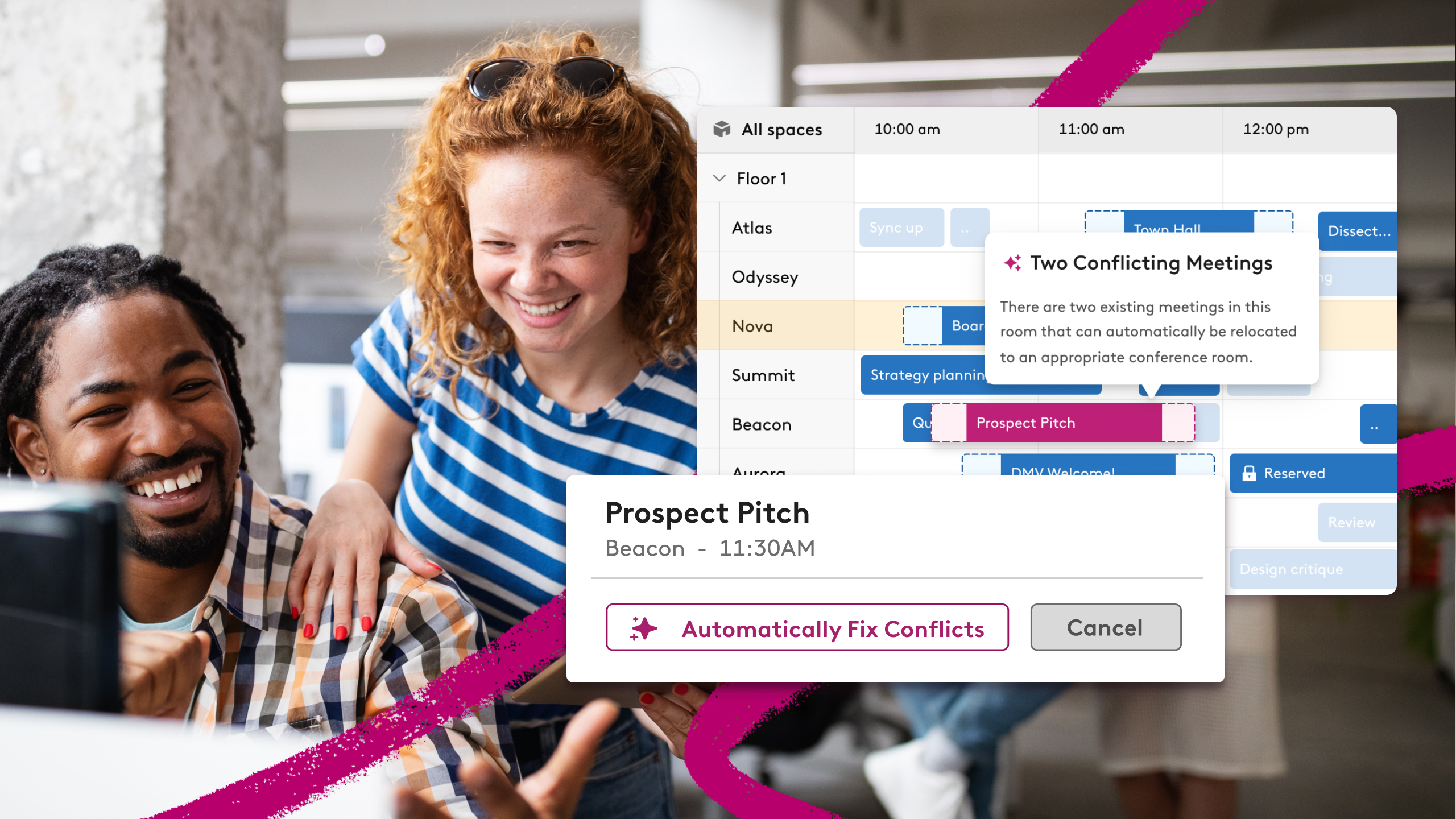Meeting Chaos Is Optional: Minimize Meeting Prep Burden

When big meetings hit the calendar, the pressure is on to make every moment count. But behind every whiteboard brainstorm or client pitch is a complex web of requests: AV, catering, room setup, visitor access, and more. For the workplace teams responsible, it’s a high-stakes juggling act that rarely gets the tools or structure it needs.
If it feels like meeting prep is harder than it should be, that’s because it is.
The Invisible Burden of Supporting Meeting Prep Requests
For workplace and office managers, planning a meeting often means juggling a dozen requests across a dozen tools: calendar updates in Outlook, catering notes in Slack, AV requests in email, and spreadsheets holding it all together with duct tape. When meetings get complicated, so does the prep. And without a single source of truth, things slip through the cracks. Bagels arrive late, the projector doesn’t work, and the room setup isn’t what was promised. Cue the chaos.
The reality? Meetings don’t fail because of bad intentions. They fail because of disconnected systems and invisible workloads.
Let’s break down what’s really going wrong, and what a better workflow can look like.
What Does Good Meeting Services Management Look Like?
You don’t need to overhaul your entire tech stack to fix meeting prep. But you do need a better system. One that brings service requests into the same workflow as your space planning and calendar tools. When done right, the result isn’t just operational clarity—it’s a better experience for every person involved.
Here’s what that actually looks like:
Centralized requests
Instead of requests spread across inboxes and sticky notes, everything lives in one place. That means:
- All requests are visible in a shared workplace operations dashboard.
- Statuses are clear (requested, in progress, completed).
- Nothing gets dropped because there’s no guesswork.
Custom service menus
Not every room, team, or building needs the same setup. Flexibility matters. Custom meeting services let teams request only the options that make sense for them, without creating clutter for others.
Automated communication
Requesters and admins get notified automatically as updates happen. No more wondering if catering’s been confirmed or if IT is actually on their way.
User-friendly workflows
Employees shouldn’t need a training manual to set up a meeting. Request forms should be quick, intuitive, and reflect the way your hybrid office actually runs.
Built-in accountability
With integrated workflows, every request has a clear owner, a deadline, and a trail. That means easier coordination and more trust that everything will get done.
Streamline Meeting Services for Hybrid Offices
In hybrid environments, the stakes for in-person time are higher. When people come together in the office, the experience needs to be intentional and smooth. Meeting services that run like clockwork signal that the workplace is worth showing up for.
And for the people behind the scenes? It’s the difference between running from task to task and actually getting ahead of the day.
Office managers and workplace admins don’t need another app. They need a smarter way to manage the mess. Integrated meeting services don’t just reduce noise. They reduce risk. And they free teams to focus on what actually matters: delivering a great workplace experience.












